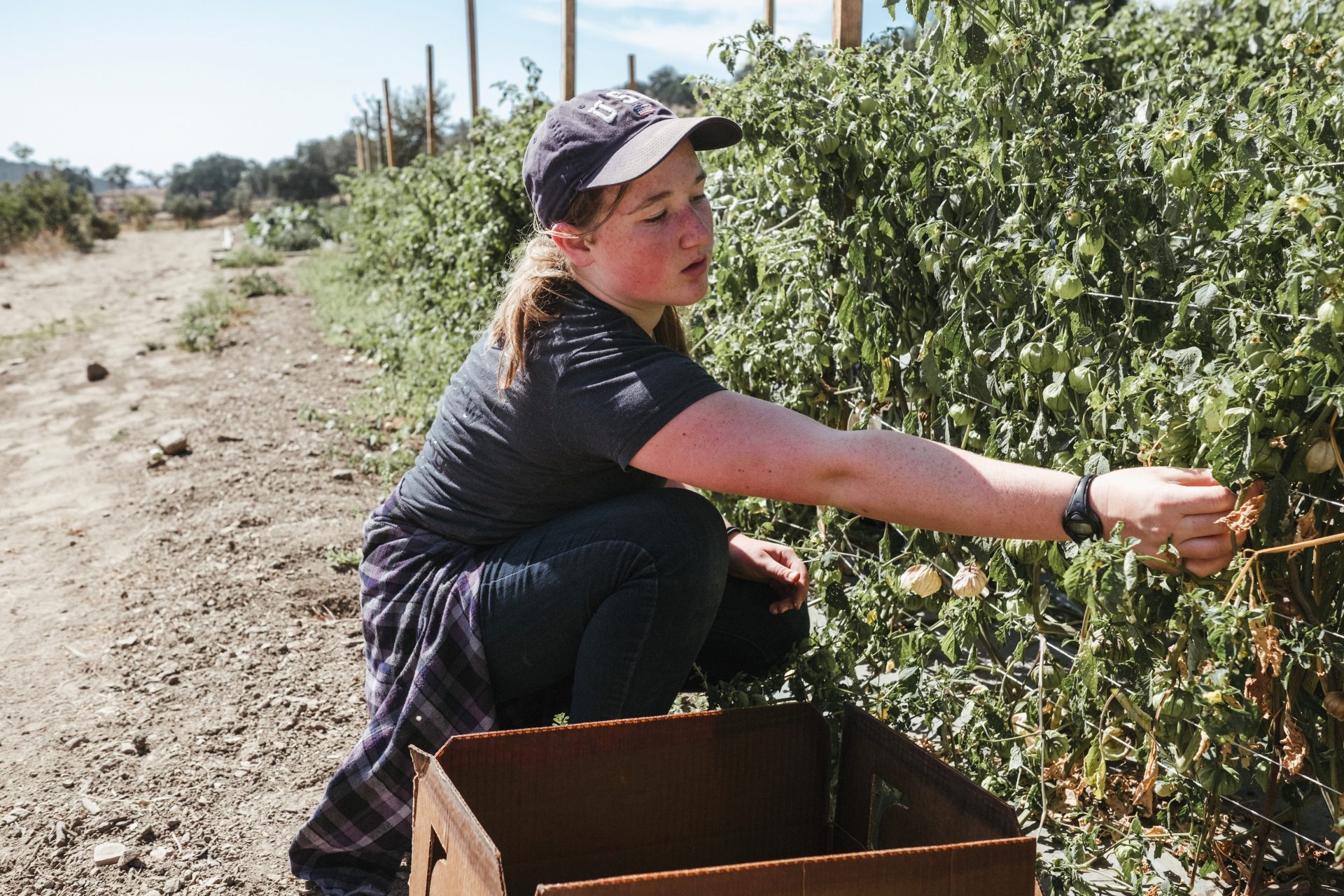联系信息
-
邮寄:PO Box 8, Los Olivos, CA 93441
Midland's Working Academic Farm

A student picks tomatillos on the Midland Farm
2021 年春季
Looking down from my window on Midland’s 10-acre organic farm, I see the fields bustling with activity. Each morning as the clouds retreat back down our valley towards the Pacific Ocean, I watch students following their own winding paths on the farm. Around sun-up, I spy students harvesting lettuce for our salad bar, while others tend gopher traps, ensuring we don’t lose too much of the harvest to the wild. As the day goes on, I see upperclassmen pass through the farm gate, for their farm internship (an academic class), where they might drive the tractor to till the soil or learn the art of pruning an apple tree.
After lunch, if I glance that way again, I might spot students coming out for their afternoon activity, where they will plant onions or garlic, trellis up the peas, or fight back the endless assault of the weeds. As the sun sets and its pink glow brushes the hillsides above the fields, a few more students may wander out to savor the fruits of their labor, perhaps gathering strawberries, some peaches, figs, or peas before returning to their studies in the evening.
At Midland, “farm-to-table” isn’t just a slogan or catchphrase, but something our students live, study, and contribute to daily, both in and outside the classroom. In Midland 101, our iconic place-based science class for our 9th graders, there is an entire unit out on the farm, including the study of soil science, botany, and independent research to learn in-depth about a particular plant out on the farm. In Chemistry, students learn about ionic compounds by examining the ingredients in our pig and chicken feed. When juniors take Biology, they may choose to conduct their final independent field studies on the farm, studying anything from pollinator activity on beneficial flowers to insect diversity in the cover crops. Then, as seniors, some students choose to bring their talents to or take inspiration from the farm for senior projects and theses, tackling topics like carbon sequestration and agroforestry.
Looking down from my window, I see the farm as an essential part of the Midland experience. Of course, the Midland farm provides 50% of the produce for our kitchen, but even more importantly, it teaches our students lasting lessons about the value of work, the pride one feels with a job well done, and what it means to truly live their education. As I watch from my window, year after year, I see the farm growing healthy minds and bodies, preparing each graduating class of Midlanders to tackle the job at hand and care for the people and place around them, wherever they may call home.
By Dan Susman
Dean of Experiential Learning
继续探索米德兰体验